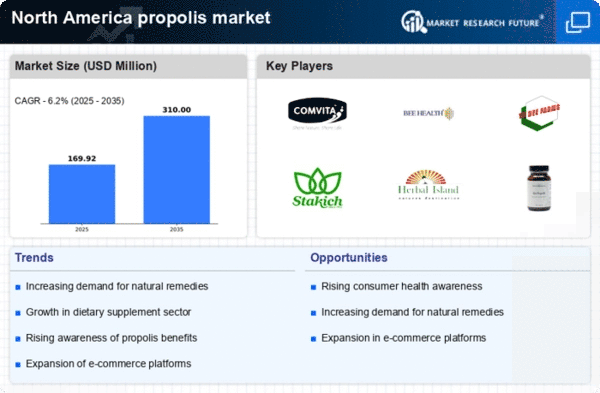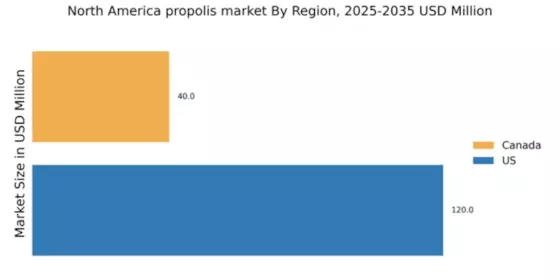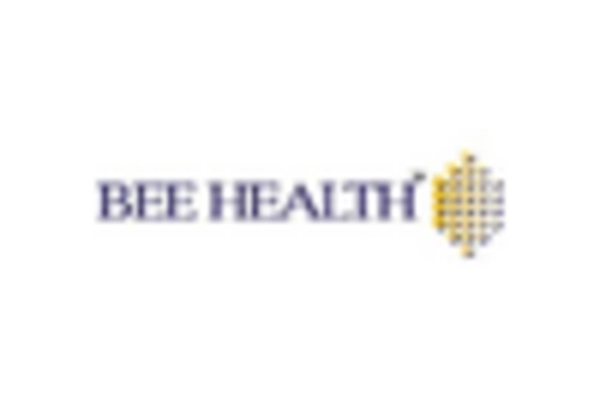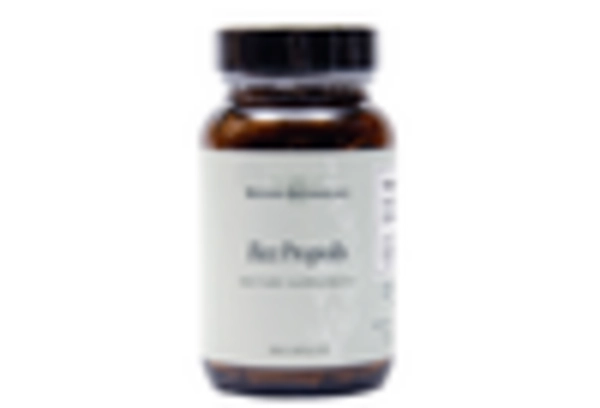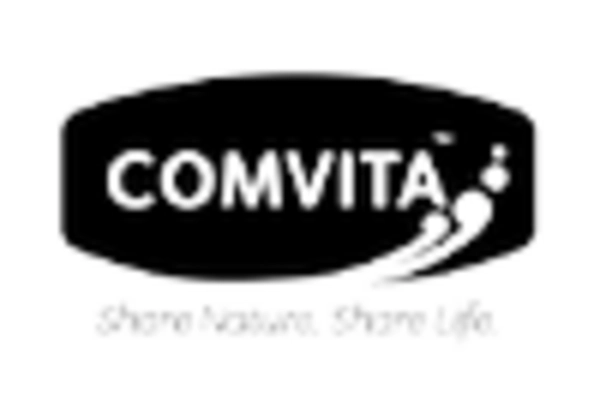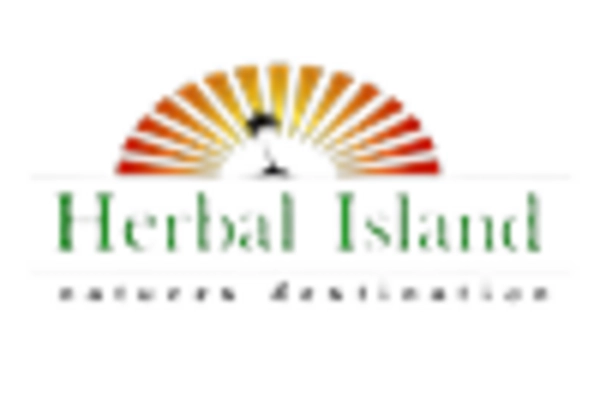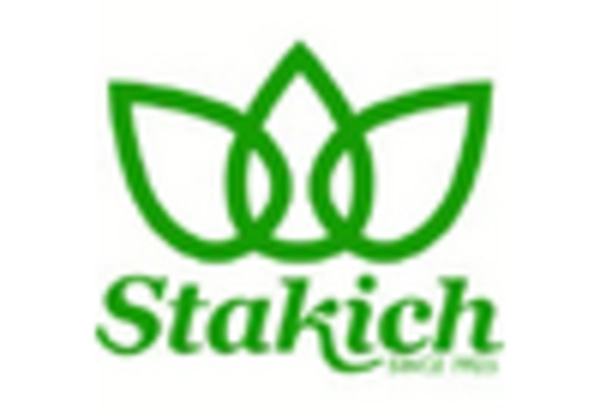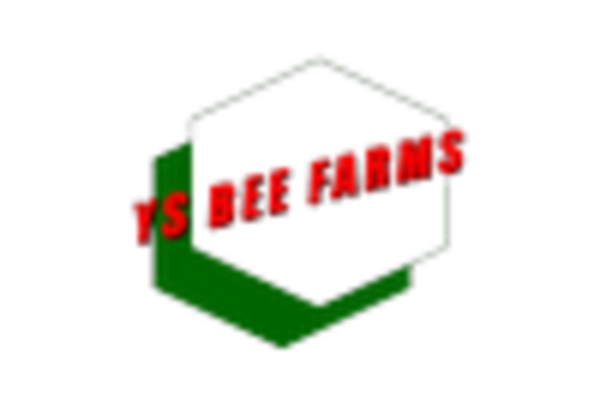Expansion of Product Offerings
The propolis market in North America is witnessing a diversification of product offerings, which is a key driver of growth. Manufacturers are increasingly introducing innovative products that incorporate propolis, such as dietary supplements, skincare items, and functional foods. This expansion caters to a broader audience, appealing to health-conscious consumers and those seeking natural alternatives. Recent market analysis suggests that the dietary supplement segment alone is expected to reach $50 billion by 2026, with propolis products capturing a notable share. The introduction of new formulations and delivery methods, such as capsules, tinctures, and topical applications, enhances consumer choice and accessibility, thereby stimulating market growth.
Growing Popularity of Herbal Remedies
The increasing popularity of herbal remedies is significantly influencing the propolis market in North America. As consumers gravitate towards holistic health solutions, propolis is gaining recognition as a valuable herbal remedy. This trend is supported by a growing body of research highlighting the potential health benefits of propolis, which may include immune support and wound healing properties. The herbal supplement market is projected to reach $20 billion by 2027, with propolis products likely capturing a substantial share. This shift towards natural and herbal solutions reflects a broader societal trend favoring alternative medicine, thereby driving the demand for propolis-based products.
Increasing Awareness of Health Benefits
The propolis market in North America is experiencing growth due to rising consumer awareness regarding the health benefits associated with propolis. This natural substance, derived from bee resin, is recognized for its potential anti-inflammatory, antioxidant, and antimicrobial properties. As consumers increasingly seek natural remedies, the demand for propolis-based products is likely to rise. Market data indicates that the health and wellness sector is projected to grow at a CAGR of approximately 8% over the next five years, which could positively influence the propolis market. Furthermore, educational campaigns and social media influence are contributing to a more informed consumer base, thereby driving sales of propolis products across various channels.
Rising Interest in Sustainable Products
Sustainability is becoming a crucial factor influencing consumer purchasing decisions in the propolis market. As environmental concerns grow, consumers are increasingly favoring products that are sustainably sourced and produced. Propolis, being a natural product derived from bees, aligns well with this trend. Companies that emphasize eco-friendly practices and sustainable sourcing are likely to gain a competitive edge. Market Research Future indicates that approximately 60% of consumers in North America are willing to pay a premium for sustainably sourced products. This shift towards sustainability not only enhances brand loyalty but also drives the demand for propolis products, as consumers seek to support environmentally responsible companies.
Technological Advancements in Extraction Methods
Technological advancements in extraction methods are playing a pivotal role in the propolis market in North America. Improved extraction techniques enhance the quality and efficacy of propolis products, making them more appealing to consumers. Innovations such as cold extraction and supercritical fluid extraction allow for the preservation of bioactive compounds, resulting in higher-quality products. This is particularly relevant as consumers become more discerning about product quality. Market data suggests that the extraction technology segment is expected to grow at a CAGR of 7% over the next five years, which could significantly impact the availability and quality of propolis products in the market.


